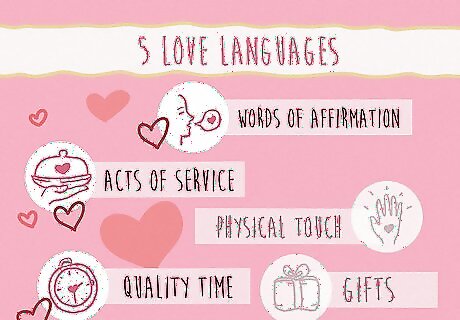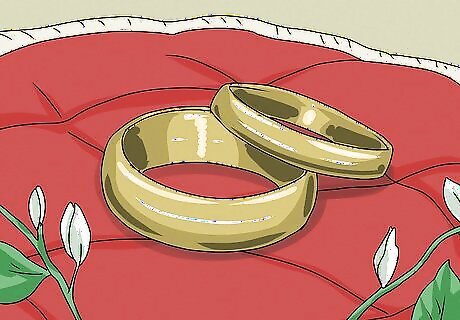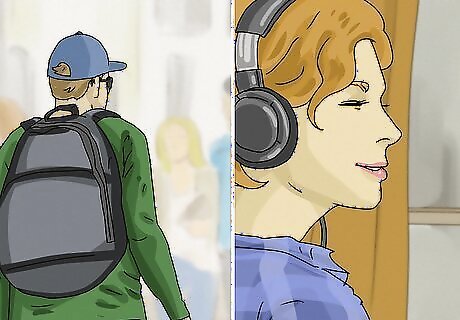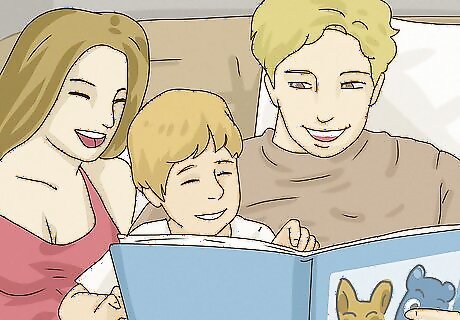
views
- ENFP and INFJ make for an ideal romantic match. They are both deeply emotional and want to express and share their feelings with their partner.
- ENFPs and INFJs also share an Intuitive quality, meaning they easily see their partner’s perspective and work to meet their needs.
- The relationship between an ENFP and INFJ is based on mutual loyalty and support, and this pair is able to communicate openly and honestly with each other.
ENFP & INFJ Romantic Compatibility

ENFPs and INFJs are very romantically compatible. They share Intuitive (N) and Feeling (F) qualities, so their relationship will be deep and meaningful. Both the INFJ and ENFJ value mutual support with a partner whom they can have a caring and compassionate relationship with. This pair has strong chemistry, thanks to their high emotional intelligence and willingness to share every part of themselves with the other. However, this relationship may feel like more of a “slow burn.” ENFPs and INFJs can be slow to trust others in a relationship, but they build deep trust over time with honest and authentic conversations.

Communication styles ENFP and INFJ both value deep and honest communication. This pair easily finds common ground since both personalities enjoy talking about emotions and big-picture ideals. However, the INFJ is much more of a listener than the extraverted ENFP, which can lead to them feeling like they’ve barely participated in a discussion. An ENFP can also help improve their communication with an INFJ by asking them direct questions and making sure they feel heard. The INFJ needs to advocate for themselves and speak up to not be steamrolled by the ENFP.

Conflict Conflict is uncommon between the equally empathetic ENFP and INFJ. Both these personalities instinctively think about the other person’s perspective in any situation. However, any conflict can feel very intense and catastrophic because ENFPs and INFJs highly value harmony in their relationship. To resolve conflict, the ENFP and INFJ can work to understand each other’s coping mechanisms. The ENFP may become emotionally overwhelmed, while the INFJ may withdraw. Both partners would do well to actively listen to their partner and avoid making assumptions about what the other is feeling or thinking. With patience and time, these partners can work together to communicate and find a compromise.

Love languages This pair shares similar love languages—they give and receive love via quality time, acts of service, and words of affirmation. To show love, both ENFPs and INFJs give time, attention, and psychological support to their partner. ENFPs and INFJs both feel loved when their partner does something thoughtful for them or provides them with emotional support, whether with words or by physically spending time with them. ENFPs appreciate a partner who does things like picking up the kitchen after dinner, says "I love you," and makes an effort to understand their feelings. INFJs appreciate a partner who reassures them that they’re safe to be vulnerable with and helps them with daily tasks and chores without being asked.

Sex and sensuality INFJs and ENFPs need emotional connection for a physical relationship. They don’t enjoy casual flings. Rather, they use sensuality and passion to connect on a deeper level with their partner. The INFJ and ENFP also match well in bed because they are both enthusiastic about their partner’s satisfaction and trying new things.

Marriage ENFP and INFJ are a great match for marriage or long-term partnership. INFJs are romantic idealists, always looking for “the one” or a deep, lifelong relationship with someone they can fully commit to. An ENFP also craves long-term relationships but needs a partner (like INFJ) who is comfortable bringing change and new experiences into the relationship over time.

Values ENFPs and INFJs share similar core values of integrity and justice. Both INFJs and ENFPs are highly idealistic, placing the well-being of humanity and the world above all else. They both fight against injustice and cruelty and are likely to spend time volunteering for important causes together. INFJs prioritize hard work and professional achievement. An ENFP, however, prefers to go with the flow and is focused on enjoying life rather than reaching certain milestones or goals.

Interests and lifestyle ENFPs and INFJs share an interest in culture, art, and exploring new ideas. They may enjoy reading together, visiting museums, and finding new adventures to stimulate their minds. However, their lifestyles may clash over routine and organization. ENFPs don’t need the level of cleanliness and planning that INFJs do. This conflict can make the INFJ feel resentful, while the ENFP may see the INFJ’s behavior as controlling.

Similarities ENFP and INFJ are alike in their idealistic and caring traits. They both care deeply about other people’s well-being and want to have a positive impact on the world. Both personality types make decisions based on gut instinct and feeling rather than fact or logic. ENFP and INFJ also share a love of new experiences—they enjoy exploring new places and ideas and coming to their own conclusions about the world.

Differences The extroverted ENFP is more spontaneous and social, while introverted INFJs are reserved and reflective. INFJs prefer to spend time alone and need an organization and structure in their lives that the ENFP does not. To improve the relationship between an INFJ and ENFP, both partners can set healthy boundaries, practice active listening, and share their thoughts and feelings honestly.
ENFP & INFJ as Parents

ENFPs and INFJs make for an encouraging and devoted parental pair. ENFPs encourage their child’s individuality and creativity. INFJs care deeply about their child being an independent person with integrity. ENFP and INFJ parents may clash over their approach to parenting, with the ENFP being more flexible and playful and the INFJ being more serious and structured. When at odds over their approach to parenting, the ENFP and INFJ couple will do well to communicate and be open-minded to the other’s perspective. Ideally, each will learn from the other’s parenting styles to find a compromise that’s best for their children. A child raised by an INFJ and ENFP pair may feel pressure to carve out a unique path in life. However, they will also be equipped with an innate understanding of right vs. wrong, as well as the freedom to express themselves.
ENFP & INFJ as Friends

ENFP and INFJs develop close friendships around shared emotions. ENFPs long for friendships with meaningful connections and emotion, just like the INFJ. INFJs also value loyalty, compassion, and new experiences in their friendships–all of which are easily provided by the ENFP. Because these two personality types are equally generous with their time and energy, they are unlikely to develop resentment like they might with other personality types. However, their different social needs may put strain on the relationship. ENFPs prefer large social groups and events with lots of more people. Meanwhile, INFJs prefer small social settings with close friends. The ENFP and INFJ friendship pair will do well if they accept their differences and the fact that they may not always be interested in the same activities. That’s okay! They can have space to do their own thing while learning from each other’s social styles.
ENFP & INFJ as Coworkers

ENFPs and INFJs have complementary working styles. ENFPs enjoy working collaboratively and easily adapt to any situation or project. INFJs, on the other hand, prefer to work independently and have an organized structure in place. To resolve a professional conflict, INFJ and ENFP colleagues can appeal to each other’s emotional side, explain to the other how they’ve been affected, and try to work together toward a compromise. While their opposite workplace habits may cause conflict, INFJ and ENFP colleagues can also balance each other out if working as a team. INFJs can help ENFPs have more structure and discipline, while ENFPs can help INFJs think outside the box and tap into their creative side.














Comments
0 comment